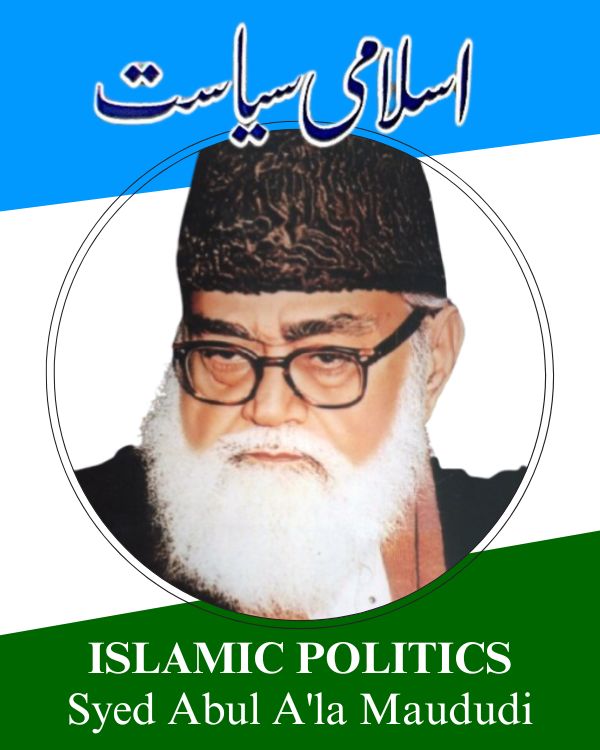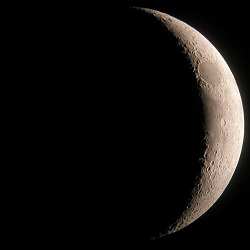Jawed Anwar
The BRITISH government of India didn’t allow any opposition to the government, and saying anything in the resistance of the British government was a criminal act. Today’s so-called champion of “freedom of expression” and democracy --hypocrite West-- never allowed any voice of dissent in any part of their occupied lands. But it was allowed to disgrace and abuse the most sacred personalities of Islam. Their “freedom of expression” only applied if it went against Islam and Muslims.
A special-interest group from among the Hindus used this “freedom of expression” against Islam and the Prophetï·º and other sacred personalities in the most vulgar way.
Rajpal published a novel from Lahore (current in Pakistan) in 1927. The contents and even the title of the novel were so vulgar, provocative and derogatory against the Prophetï·º that they can’t even be quoted. The novel was written by someone unknown. He might be Rajpal himself or hate writers Pandit M. A. Chamupati or Krishan Prashaad Prataab. Rajpal never revealed the author’s name, but the book’s publisher, promoter, and the seller were Rajpal. His address was published in the book.
It is important to note that in those days, followers of Qadiani leader Mirza Ghulam Ahmad Qadiani (b. 1835, d. 1908, falsely claimed himself a prophet of God), a stooge of the British Empire, provocatively incited Hindus by disgracing their sacred personalities with impiety (Islam doesn’t allow it). They published a pamphlet defaming Sita, a holy woman (wife of god Ram) of Hindu belief. Similarly, Ghulam Ahmed Qadiani also disgraced Jesus and other sacred personalities of other religions. Muslims believe and declare Qadiani (claimed themselves “Ahmadia Muslims) non-Muslims. Most Muslim countries and a few non-Muslim countries declared them non-Muslims.
But Hindus considered them Muslims. All the activities of Qadiani were considered Muslim/Islamic activities, and Qadianis aggressiveness against Hindu religious figures further inflamed anti-Islam sentiments. This is also one of many reasons for the flood of blasphemy literature.
In the beginning, in the case of escalating tension between Hindus and Muslims and in the case of disturbing communal harmony and creating unrest (Indian penal code 153a of that time), the first-class Magistrate of Lahore C. H. Disney announced the sentence for Rajpal: six months jail with labour and Rupees one thousand fine. But when he appealed in session court, the conviction was only reduced to six months in prison. Later, he appealed to the high court, and he was released without any punishment. A high court judge, Justice Dileep Singh, was severely criticized by the Muslim community leaders and Muslim media, but Hindu communal forces and media highly appreciated the judgement. Muslims started protest rallies all over India against the decision, but all the cries and tears of Muslims went in vain.
The chief editor of the English newspaper Muslim Outlook (the only English Muslim newspaper), Syed Dilawar Shah, wrote an editorial against the judgement. He and the newspaper’s owner Maulvi Noorul Haq were sentenced to jail for three months and one thousand fine in charge of contempt of court.
Maulana Muhammad Ali Jauhar (1878 –1931), a noted Muslim leader of the time, spoke out in Jama Masjid, Delhi, on this issue. It is a historically memorable speech. An Afghan newspaper from Kabul, Aman Afghan, also published an extremely touchy editorial on this issue.
In 1927, the administration of the British Raj enacted Hate Speech Law Section 295(A), a part of the Criminal Law Amendment Act XXV. That made it a criminal offence to insult the founders or leaders of any religious community. However, the court didn’t apply it to Rajpal and other Hindu hate mongers.
Muslims were extremely upset and disappointed by the British justice system and found themselves hopeless.
On July 4, 1927, a huge Muslim public meeting was organized in Lahore. Meher Ilmuddin, Mian Muhammad Shafi (1869–1932), and Khawja Ghulam Muhammad played significant roles in managing this vast public meeting. The government banned the organization of the rally. But despite the bans, restrictions, and hurdles, Muslims came out of their homes and gathered on the lawn of Sheikh Abdur Raheem. It was just at the front of Shah Muhammad Ghous’s (R.) grave. Their moderately counted numbers were 35,000.
Noted scholars and community leaders of the time, Ameer e Shariat, Maulana Syed Ata Ullah Shah Bukhari (1892 –1961), Mufti Kifayatullah (1875 –1952), Maulana Hussein Ahmed Madani (1879 - 1957), Maulana Zafar Ali Khan (1873–1956), Maulana Habibur Rahman Ludhianvi, Ghazi Abdur Rahman, Maulana Ahmad Saeed Dehlvi, Sheikh Sir Abdul Qadir (1874 –1950), Chaudhry Afzal Haq (1891–1942), and many others, attended the meeting.
All the speeches were full of emotions. But when Maulana Ataullah Shah Bukhari, the most prolific orator and articulate speaker of his time, began his speech, the situation became highly charged. Addressing all the Ulema (scholars) and the community members, he spoke:
“Today, our mothers, Khadeeja (r.a.) and Ayesha (r.a), are knocking on our door, bringing a resolution in front of us. Our beloved mothers (r.a) are complaining that they have been insulted with abusive language. Where is our dignity, my sons!? Where is your honour!?” (translated from Urdu).
And the whole crowd was crying with emotion. After a few days, Maulana Syed Ataullah Shah Bukhari, Ghazi Abdur Rahman, Maulana Habibur Rahman, and many others were arrested.
On September 26, 1927, a youth Khuda Baksh Akojha attacked Rajpal with his dagger. However, Rajpal’s life was spared from this attempt. Khuda Baksh was arrested and convicted, and imprisoned for seven years. Abdul Azeez, a Muslim Youth native of Ghazni, Afghanistan, went to Rajpal’s book store and mistakenly attacked another person sitting in place of Rajpal. He was Swami Satyanand, a friend of Rajpal. Later, he was arrested and charged in case of injuring three persons. Another student from Amritsar, Hafiz Abdul Musawwir, also made an unsuccessful attempt.
Spared from several attempts, District Magistrate provided Rajpal with three police officials for his security. But feeling imprisoned, Rajpal himself left Lahore for several months. He came back when his Hindu friends accused him of his timidity. Rajpal also thought that the matter was over and that his life was safe now. He started aggressively selling the books with a new passion.
On April 6, 1929, a youth named Ilmuddin, a native of Lahore, and a carpenter by profession, was ready to accomplish the unfinished task. He informed his relatives and close friends about his intention and distributed his valuables as gifts. At 2:30 pm, he arrived at Rajpal’s book store. He was lying on the floor, and Ilmuddin informed him to be ready to die. The voice was so strong that his two store helpers didn’t even move to rescue him, and Rajpal closed his eyes with fear. Ghazi Ilmuddin attacked forcefully with his dagger.
Later, Ghazi Ilmuddin was arrested. All the efforts of noted Muslim lawyers of the time went in vain. However, Islamic scholars, particularly Ataullah Shah Bukhari, were against any plea and opined for him to achieve the highest place in Al-Jannah as a martyr.
Ghazi Ilmuddin clearly and without any doubt admitted the murder. Noted lawyer Muhammad Ali Jinnah (1876 –1948), later founding father of Pakistan (liberated after dividing India in 1947), took his case. Mr. Jinnah was a professional lawyer based in Bombay and was a member of the Congress Party of India at that time.
Mr. Jinnah asked Ghazi Ilmuddin to change his statement so he could advocate better. But Ghazi refused to make any amendment and was expecting and waiting for his martyrdom.
Muhammad Ali Jinnah fought this case intelligently, one of his best-argued cases that showed his highest intellectual capability. But he was not successful in protecting from conviction. The desire for the martyrdom of Ilmuddin and the government’s intention to hang him superseded all the legal efforts.
On October 28, Ghazi Ilmuddin Shaheed was martyred. He was smiling and was extremely calm when he was hanged. A moment before the execution, it was reported that he was arguing with the jailor about why he was delaying the hanging. It seemed that he was anxiously waiting to meet someone --the Unseen. In his academy of love, death was dearer than life.
The government allowed his burial in Mianwali, not in his native place Lahore. About six hundred thousand Muslims attended his funeral, and Maulana Zafar Ali Khan and Allama Muhammad Iqbal wished to be placed with Ghazi Ilmuddin Shaheed.
An editorial published in a moderate Urdu newspaper Siyasat:
(Translation:) “The murderer of Rajpal is obviously Ilmuddin. But if you think cool-mindedly, then our nation brothers will realize that the real murderer of Rajpal was the author of the novel--writer and publisher who shocked tens of millions of Muslims’ sentiments badly. Muslims had been demanding the government convict the culprits. The Punjab government started legal proceedings; however, the outcome of this case was not satisfactory.”
“If the author (publisher Rajpal) could show courage and admitted his crime and he could accept the jail terms and fine as was pronounced by District Magistrate, it could be said with confirmation that the murder of Rajpal would never have happened. Undoubtedly, the life of a human being is precious, and the person who took it had to face severe punishment. But the person who damages and kills the sentiments of hundreds of thousands of human beings by using his tongue or pen is also a murderer. It is also serious that the society that made regulations against this crime has proved inadequate. Suppose society considers the murder of sentiment a serious crime, and people take care of others in their speech and writing so that it doesn’t hurt others’ sentiments. In that case, that can prevent considerable turmoil and strife.”
The murderer Rajpal was the author of the novel and Rajpal himself. He had been continuously attacking, boiling, and killing the sentiments of tens of millions of Muslims.
It is “surprising” to note that no single Hindu leader (except Mahatma Gandhi) of any party condemned Rajpal’s evil deeds. 14
NOTES:
14. Allah aur Rasoolï·º ke Shaheed (Namoos e Risalat ke Saat Shaheed), Urdu by Rai Muhammad Kamal.
To be continued:
ARTICLE-1
ARTICLE- 2







